If player deaths aren't enough, what will change coaching culture?
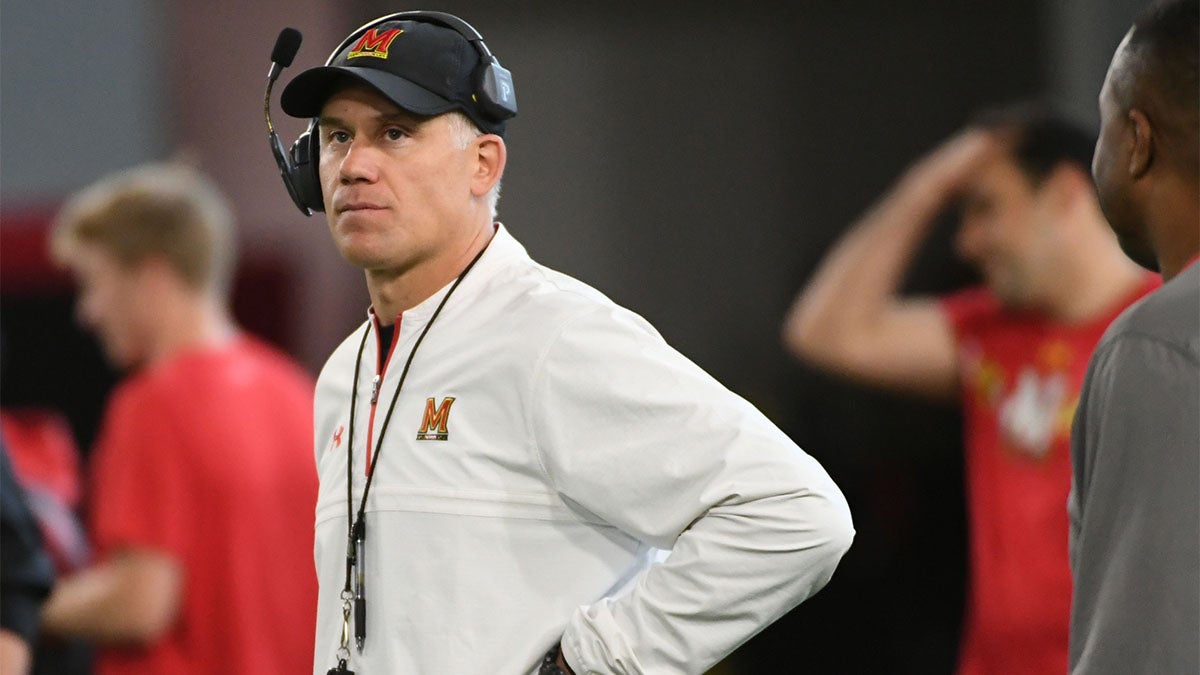
Some tipping points are more personal than others, which is why Ramogi Huma can’t get this one out of his head, 20 years after the fact. No matter how hard he’s tried.
During Huma’s days as a UCLA linebacker, he looked over during one game and saw a teammate spilling his guts all over the Bruins’ sideline. Only in this case, because of a hernia, the spilling was extremely literal, and — by all indications — painful.
The catch? His coaches were having none of it.
“The guy’s guts were kind of spilling out of his stomach muscles,” Huma recalled. “And they just wrapped a metal plate around his stomach to get his intestines in.
“A lot of trainers and coaches, they work in tandem, sometimes. They really try to avoid giving some diagnosis, sometimes, running tests, for fear that a player might be out.”
It wasn’t the first time Huma, who appeared in two dozen games for the Bruins in the late 1990s, had seen a coach try to push their mandate — and their thirst for victory — a bridge too far. Yet it became one of those back-of-mind snapshots, filed away, that left a mark. A personal data point Huma could refer to in his current role as executive director of the National College Players Association (NCPA) and as advocate for the rights of student-athletes.
“Oftentimes, it happens over injuries, when a player can’t perform for a little while,” Huma said. “Over time, they just get treated like crap for the purposes of bringing them back early. Or running them off. A coach should never have a say over medical decisions. Ever.”
Win at all costs - even death
Huma figured the tipping point might be the death of Devaughn Darling at Florida State. Or the death of Eraste Austin at Florida. Or Rashidi Wheeler at Northwestern, one of three football players to die in 2001 because of an offseason workout. Nearly a generation later, preseason training took the lives of Jordan McNair, an offensive lineman at Maryland, this past June; and Darius Minor, a defensive back at Maine, in July.
If you want to know why Huma thinks the coaching culture in colleges jumped the shark a long time ago, start there.
“I speak to a lot of parents, try to figure out how to navigate situations,” Huma said. “A lot of people don’t know if this is normal, this abuse — should we be putting up with it? It’s been handed down a long time. There are some elements that go around with football as a combat sport that challenge you to play through pain. But is it a serious injury, or is it a jammed finger? Is it a tweaked ankle or a broken ankle?
[beauty_quote quote='“Oftentimes, it happens over injuries, when a player can’t perform for a little while. Over time, they just get treated like crap for the purposes of bringing them back early. Or running them off. A coach should never have a say over medical decisions. Ever.” - Executive director of the National College Players Association Ramogi Huma']
“In my opinion, it’s been handed down. It’s always been that way. But that’s never been an excuse not to correct its problems … If you’re raising your voice and yelling but you’re not demeaning the player and yelling at the player, maybe that’s ‘tough’ coaching. But I think it’s all been blurred. Football is such a combat sport, nobody wondered if there should be boundaries.”
Or, for that matter, accountability. According to February 2017 piece written by Oklahoma trainer Scott Anderson in the Journal of Athletic Training, 33 NCAA football players died from 2000-2016 — an average of two per season — with 27 of those fatalities (82 percent) linked to non-traumatic causes such as spring and summer workouts.
In other words, the causes could’ve been mitigated or avoided. Causes that have almost nothing to do with the combat inherent to the sport.
“But you’re talking about coaches, whether they’re paid $50,000 or $500,000 or $5 million, those are really important careers to those coaches,” Huma said. “And many of them get blinded by that, to where they’re not coaching right, they start abusing players. And I’ve seen it at all levels. At universities, their instinct is to cover things up. They’d rather push a player out than try to correct an abusive coach’s behavior. They think it admits liability; it admits the school’s been in the wrong.”
Student-athletes have scholarships. Coaches have contracts. And lawyers. And, in many cases, brand equity, political capital accumulated by giving the community what it wants — a winner to brag about.
“Head coaches of football, and to a lesser degree, men's basketball, have held too much power — culturally, economically, politically — since at least the postwar era when commercialized amateur big-time sport on college campuses begins its acceleration, which has not slowed since,” noted Arizona State professor Victoria Jackson, a sports historian and history lecturer who ran cross country and track at North Carolina and for the Sun Devils.
“Ultimately, it comes down to individuals, but at the same time, the culture of intercollegiate athletics contributes,” she said. “What I mean by this is that too often athletic departments are spaces in which you ‘bleed Carolina blue,’ and people are afraid that any sort of negative publicity will harm teams' efforts to win, as well as the bottom line. I get this as a former champion collegiate athlete — you have to buy in, 100 percent, to excel at the highest level. You have to believe 100 percent in your coach and the program. Athletes are trained to ignore distractions, overcome obstacles, deal with pain in order to achieve the seemingly noble achievement of winning at all costs.
“Built into the ideology of ‘amateurism’ is this belief that young people need protection and guidance, and that it's the coach who provides that. It's incredibly paternalistic, and also provides cover for coaches, and others working in athletics — like the sports performance trainer at Maryland or Larry Nassar at Michigan State — who abuse their power.
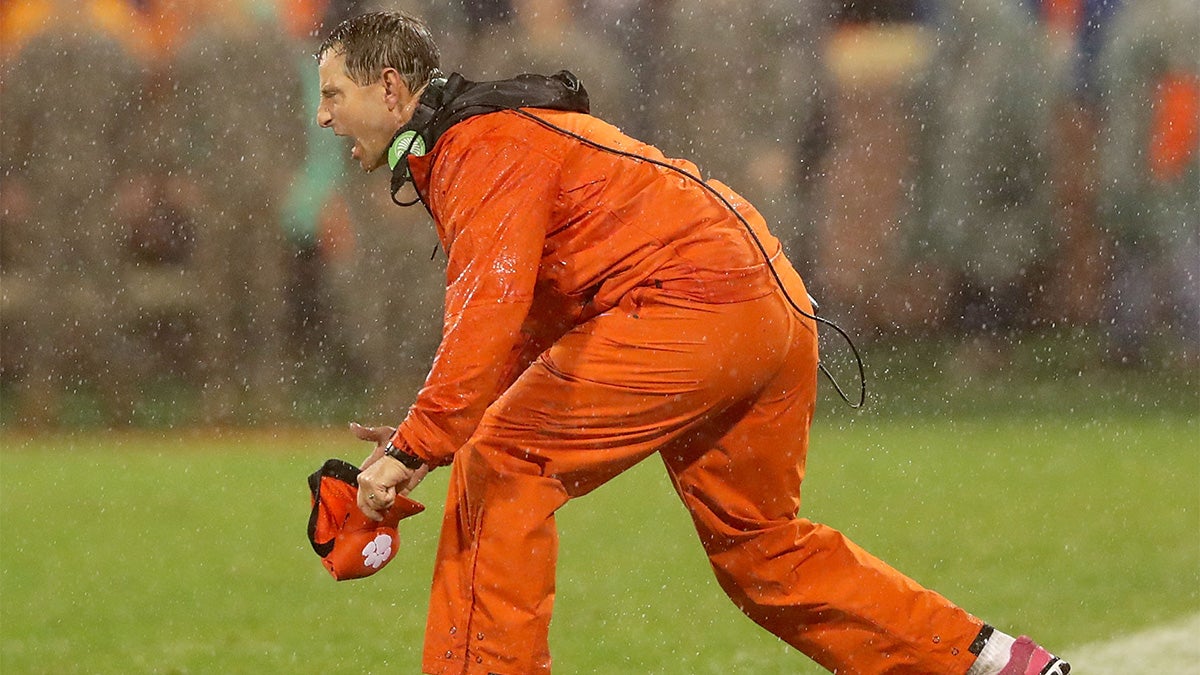
“What troubles me as an educator, is that we — higher education — are in the business of critical thinking, and we have this one space on university campuses that eschews it. And is permitted to, in most cases. People are afraid to say anything negative because it might hurt the brand in the short term.”
Athletic directors get graded on the flow of capital, the facilities arms race, compliance and the success of hires. Nothing fills an offering plate quite like winning, especially winning in major-revenue sports: ESPN researcher Charlotte Gibson reported earlier this year the highest-paid public employee in 39 states is either a college football or college basketball coach.
“I can’t think of any other academic or professional occupation that has as much influence (as a college coach),” said Arizona State professor Eric Legg, whose research interests include positive youth development in youth sports, coaching education and transformational leadership. “Perhaps a charismatic CEO, such as (Facebook’s) Mark Zuckerberg. But the combination of finance and emotional attachment is difficult to replicate in another profession.”
It’s simple math: Coaches win, fans are happy. Happy fans donate more. Happy fans spend more. Happy fans show up more. Happy fans rally around a coach. Happy fans invest hearts, minds and wallets toward him or her. When the waters get choppy, happy fans are more willing to look the other way.
“The second reason is more difficult to quantify, but, in my view, equally powerful, and that is the nature of fandom,” Legg said. “Fandom can be an enormously powerful emotional experience that can have positive benefits, such as building a sense of community with other fans, social capital and simple joy.
“But it can also lead to negative outcomes, an ‘Us Versus Them’ mentality that extends beyond the game, anger ignoring negatives. Too many times, fans ignore anything negative about a team they identify with — perhaps over-identify with.”
How much control is too much?
Dave Ridpath figured the tipping point might be Woody Hayes punching Charlie Bauman. Or Bob Knight choking Neil Reed. Or Dave Bliss and what was left of his conscience following the men’s basketball scandal at Baylor that occured during his tenure. But last month, he watched Ohio State football coach Urban Meyer turn a domestic crisis — longtime protégé and former Buckeyes assistant Zach Smith was accused of abusing his ex-wife Courtney Smith — into a public-relations one, the hole becoming deeper with each layer of hubris.
“I always say coaches think they’re the smartest people in the world. They say, ‘Well, I’ve had kids who practiced in the heat (before) and nothing happened.’” said Ridpath, a professor at Ohio University and president of The Drake Group, an advocacy organization dedicated to preserving academic integrity in collegiate sports.
“We’re just seeing an explosion of that, where the coaches are almost god-like on these campuses, where they have an unhealthy amount of control and they’re focused on one thing — winning and losing. And the other stuff is just distraction, collateral damage. As long as they’re winning, we seem to accept it.”
[beauty_quote quote='"... the coaches are almost god-like on these campuses, where they have an unhealthy amount of control and they’re focused on one thing — winning and losing. And the other stuff is just distraction, collateral damage. As long as they’re winning, we seem to accept it.” - The Drake Group president David Ridpath']
In November 2016, The Drake Group offered seven recommendations for establishing a universal ethical code of conduct for coaches, including specifically defined unacceptable behaviors for abuse and discrimination, a process for receiving athlete complaints, designation of all athletic department employees as mandatory reporters and protection for whistleblowers.
“Even if we run (college sports) the way The Drake Group explained, people are still going to show up and watch,” Ridpath said.
“People are still going to show up and watch Ohio State and Michigan. People are still going to show up to watch the game. And we’re trying to have it both ways, and it’s just not working anymore. There’s so much money and too much power, and it’s putting too much stress on the educational system.”
It’s cynical math: The more some coaches win, the more invulnerable they feel, at least in the court of public opinion. Self-preservation kicks in. Protect the brand. Protect the legacy. Protect the family. Protect the other guys or gals in the bunker. Above all, protect your backside.
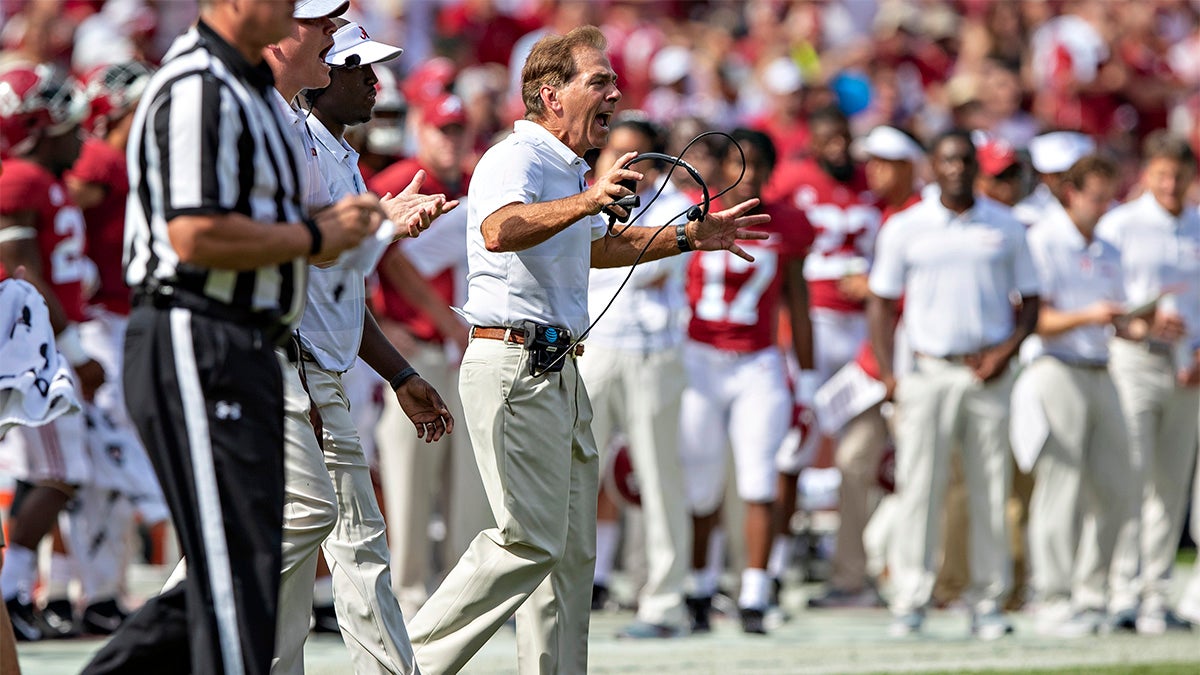
“It’s the old saying: Power corrupts and absolute power corrupts absolutely,” said Jim Thompson, the founder and CEO of the Positive Coaching Alliance, which launched in 1998 to promote and cultivate positive character development — “Better Athletes, Better People,” their slogan reads — in youth sports.
“You ask why people coach, say, football. And one, is that they love the game. And second, they might really see potential to develop better people through the sport. And they’re in a position of influence, and we all kind of adhere to our own narrative. We all want to be important, we all want to be respected. And also, I think, for many people, (having) power over another person feels good … they jump when I tell them, that feels good at a neurological level. I think, when you are successful as a coach, you gain more power and more ability to do things your way.”
Few have been more successful at the Power 5 level than Meyer, a national championship winner with Florida and Ohio State who has banked political capital — with Buckeyes fans, with boosters, with his recruiting pipelines, and with national media outlets such as ESPN, for whom he worked as an analyst — the way Scrooge McDuck piled gold coins.
In the preseason, he found himself testing that capital, stepping on rake after rake as the truth became less convenient, less spinnable and less in his control. At Big Ten Media Days, Meyer denied knowledge of any allegations against Zach Smith, denials disproven by subsequent media reports. A university-imposed three-game suspension looked to non-Buckeye faithful like a relative slap on the wrist, a gambit worsened by the fact Meyer’s initial public apology made no mention of the alleged victim whatsoever. The subsequent backlash from that slip required another mea culpa from Meyer, this one offered directly to Courtney Smith.
“Afterward, that’s where it really turned into a disaster,” Ridpath said. “At first, I thought it was a good move for him to go on a suspension while this would shake out. And I do think, under the circumstances, regardless of what people think, it was the right move to suspend people at first.
“Public Relations 101: Never let a one-day story become a two-day story. Well, it went on another two months.
“If he would’ve come out and said, ‘Hey, I screwed up, I was trying to protect a friend, someone who was like a family member.’ … saying he did not know, that stuff stretched his limits of credibility.”
Coaching culture function of individual and environment
Julie Rousseau, the former coach of the WNBA’s Los Angeles Sparks and of the women’s basketball program at Pepperdine who is working on her dissertation at Arizona State about coaching stress, said her research shows stress to be a potential source of a coach’s questionable judgment, defensive behavior and temperament — the moods and measures that border on the Napoleonic.
“In terms of how stress affects people’s behavior is that it affects your thoughts, your decision-making,” she noted. “You don’t have the clarity you should have when you’re under an enormous amount of stress.
“I’m not trying to bypass that there are some poor decisions that have been made, no doubt about it. But I do think that when you are inundated with so much on your plate, you’re not making the best decisions, let’s say that.”
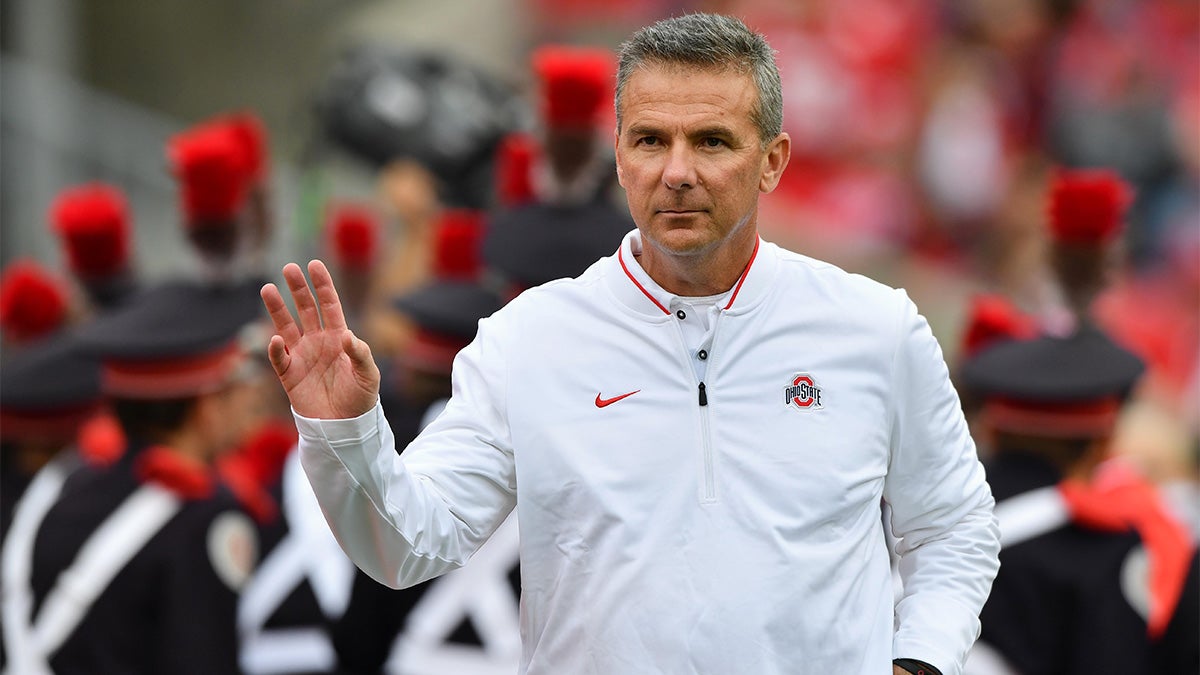
Jackson suggested cracks in today’s coaching culture could be paved over, in part, by the building of bridges that link academics and athletics — using common ground as a gateway to start the climb toward a higher one.
“Athletics cannot exist in a bubble, and faculty need to step up and become involved in what's going on at their campuses,” Jackson said. “The vast majority of people who work in athletics are good people, but it's the broader structures that contribute to creating a separate culture and space on campus.
“If you have a student-athlete in your class, ask them how they're doing. Go to games and bring your kids, if you have them. Reach out to a coach and invite them out for coffee or a beer to talk best practices — coaches are teachers and want to talk shop. Invite administrators to your class, or offer to give a talk with students, coaches and administration. Volunteer to work on special projects. Show up to things and demonstrate you care about their athletes, too. This is one way to start to chip away at the walls constructed around athletics and to better serve our students who are athletes.”
[beauty_quote quote='“Public Relations 101: Never let a one-day story become a two-day story. - The Drake Group presidens David Ridpath']
Rousseau found that coaching culture, and the pitfalls that can stem from unchecked power, were as much about the environment as they were the individual. Some of the responsibility falls a rung or two higher in the campus infrastructure.
“At Ohio State and Maryland, I don’t know all that they were under, but I do think that coaches are under such an enormous amount of stress that we do need to pay attention to, because the results are poor decision-making,” she said.
“Maryland, how much of a tragedy is that? (McNair) lost his life — that’s the ultimate tragedy.
“I don’t think any coach is going to say, ‘Feel sorry for me.’ But I think some coaches are going to say, ‘Yes, I am stressed,’ and it’s something that we don’t talk about because it’s a sign of ‘weakness’ in this culture.”
Of course, those sympathies only extend so far. Last fall, almost two dozen Football Bowl Subdivision coaches reportedly earned at least $4 million, and every one of the 121 FBS jobs listed in the USAToday.com database took home an annual salary of at least $376,000.
“This is what I say to that,” Rousseau countered. “If I’m in a marriage, I know what I signed up for. My spouse says, ‘I’m taking care of the bills,’ but not one time have you shown that ‘I love you’ and ‘I care for you.’ There’s a big difference between, ‘Well, we’re making enough money.’ That doesn’t show that, ‘Yes, I care.’ Because (the partner)wants something for that, too.
“Money is good. What I’m saying is that it has to extend itself beyond that. If I’m investing all this money into a coach and everything, wouldn’t I want to give them the support they say they need in order to make good on my investment? So money is the only measure of showing that I care about you?
“I’m not saying, ‘Let it be a kumbayah type of thing.’ But I am saying there needs to be more emphasis put on the fact they’re a human being.”
Nice guys can finish first
Thompson figured the tipping point was Steve Kerr, a classic “nice” guy who was able to win big as a “players coach.” Or Brad Stevens, who raised the discourse to match the stakes.
“Two years in a row, he took his (Butler) team to the (NCAA men’s basketball) championship game, and the second time he did that was against UConn, and UConn had way more talent than Butler did,” Thompson said of Stevens, the men’s basketball coach of the Bulldogs from 2007-13 and currently the coach of the Boston Celtics. “They came out of the locker room and played the worst half of basketball that they could play and ended up losing and afterward, he was asked how it felt to lose a game on national TV with a million or so people watching.
“He said, ‘Well, if anybody had to lose a game the way we did, I’m glad it was us, because my players have the character to deal with it.’ I don’t think anybody who knows Brad Stevens doesn’t think he wants to win — he’s an incredible competitor. Instead of throwing his players under the bus, he elevated them. He said, ‘My players have the character to handle a loss like this.’ Wow. If Brad Stevens does it, another coach can emulate that and try to do it as well. That’s really what the Positive Coaching Alliance is about: To help youth and high school coaches to be themselves. Their best selves.”
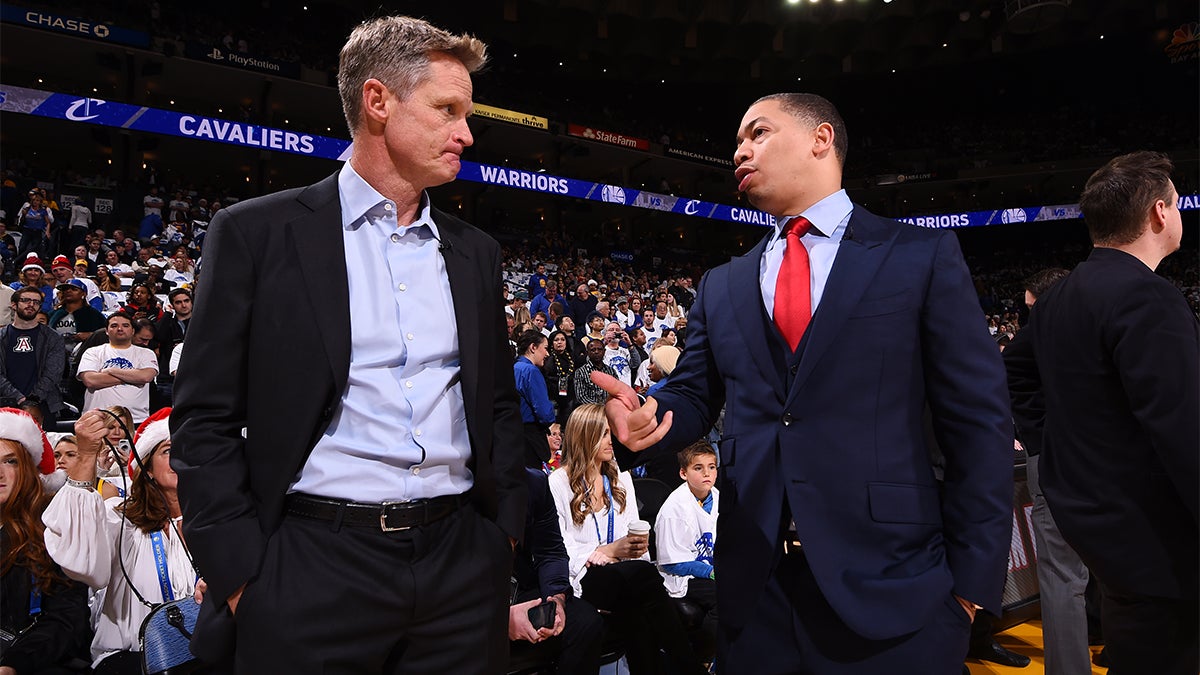
Thompson is a football guy and a glass-half-full guy, but he also admits the headlines of recent weeks haven’t helped. When McNair’s tragic death drew the curtains back in College Park, Maryland, the cobwebs backstage were anything but flattering. After an ESPN report late in the summer detailed a toxic and abusive atmosphere at the core of Maryland football, strength and conditioning coach Rick Court left the program and coach DJ Durkin, where the buck ultimately stopped, was placed on administrative leave.
“There’s only so many things you can control,” Thompson said. “Football coaches, as a species, generally, want to control everything that they can control. And I think there are other examples of that, where people that are wired to just do what they’re told. But when the person who told them what to do is gone, sometimes they’re stymied, as opposed to when you share that power.”
And not every successful coach is committed to peeling paint off the walls in order to impose his or her will. Nebraska football coach Scott Frost was born into a coaching family and played under or coached under a range of temperaments during his professional development — from the acerbic volcano of Bill Parcells to the calm, Midwest stoicism of Tom Osborne. As a coach with the Cornhuskers and at Central Florida, he has made a conscious effort to take more of his behavioral cues from the latter.
“We're not going to yell and scream at kids; we're not going to cuss at kids,” Frost told reporters this past spring. “I don't think that's the right thing to do. And I also don't want to make kids afraid to make a great play. If someone misses a tackle or drops a ball, they don't need to be yelled at; they need to be taught the right way to do it so it doesn't happen again. Once you take away that fear of what might happen if you make a bad play, it really frees you up to go make great plays. I want our team to always play with a desire to excel and no fear of failure.”
For many coaches, fear becomes weaponized in order to make sure failures wind up minimized. Old habits are a beast to break, but Thomas and the PCA have been working at a grassroots level to get more coaches to follow the path of Stevens, Kerr or Frost.
[beauty_quote quote=' “Football coaches, as a species, generally, want to control everything that they can control." - Positive Coaching Alliance founder and CEO Jim Thompson']
“It’s OK to make mistakes,” Thomas said. “That’s one of the biggest lessons we share with youth coaches is to develop a mistake ritual. Go out there and be as aggressive as you can. And if you make a mistake, flush it. Because you’re going to make mistakes. People make mistakes when they’re playing golf, and there’s no one trying to knock them down when they’re taking their shots. The question is, do you have the robust feeling for yourself where, ‘I can bounce back from that and I’ve got a desperate need to succeed,’ and, ‘I’m going to learn from this and keep going?’”
Political columnist George Will once famously blasted football by noting how the sport manages to seamlessly marry violence and committee meetings, two of the more unsavory aspects of American life. Even more than it celebrates aggression, Thompson said, the strategic, stop-start nature of the game caters to another set of aspects: militaristic precision, control and micro-management.
“It’s a structured game,” Thomas said. “Soccer, for example, or basketball, you can run plays, but it’s much more free-flowing and you don’t have a situation where you can step back after every play and huddle up and figure out what you’re going to do next. So it’s kind of set up structurally to cause people to want to control more things — that armchair theorizing. It’s a different sport, it’s much more structured, and the coaches have many more opportunities to intervene.”
Sometimes for the better. Sometimes not. As a teenage quarterback at West Fargo (North Dakota) High School, Thompson recalled, “(my)coaches might have sent in a play one or two times per game, if that. My responsibility was to call plays. What’s the down, how much time’s left, what’s the score, where is the defense and then call a play.
“Now when you think about the quarterbacks in the NFL, they’re so much more talented and knowledgeable than I was in high school. But they rarely get to call a play.
“Youth sports is not professional sports and the goals is not just to win the game. High school and youth sports, the goal is to use sports to develop better athletes and better people. And I think giving quarterbacks the opportunity to call plays, for example, is part of that development experience.”
Rousseau has a suggestion that kills two birds — giving student-athletes more of the reins to learn from their decisions and mistakes while easing the public pounding coaches feel to be universally accountable — with the same stone: Change the channel. Give the CEOs of college programs a little more time, a little more space to switch off, to find some balance in a profession that so seldom allows it.
“There are so many coaches who have been in the industry a long time, who have very good coping strategies,” Rousseau said. “I’ve used the term, ‘Change the Channel.’ If we just learn to change the channel every now and then, not always think about our work — where we have different interests and so forth.
“Again, (it helps to have an AD) that says, ‘Hey, we understand the stress and amount of pressure that you’re under, we’re going to do our best to mitigate some of that.’ I think it’s systemic — everyone that’s involved in that environment has a responsibility to create a more healthy environment that promotes well-being.”
“I think there’s a point where we have to knock everything over,” Huma said. “It’s not naturally happening. There’s no tipping point for the NCAA as an organization, which leaves the conferences and the schools.
“The schools have a conflict of interest, so they’re not going to get reeled in. The conference commissioner is hired by the schools. The commissioner, if he pushed back, he’s going to be fired by the schools.
“I think it’s just a matter of time. It’s not going to tip over naturally. You have to tip that thing over.”
Sean Keeler has written for several media outlets, including FOX Sports, The Guardian, American Sports Network, and Cox Media’s Land of 10 and SEC Country verticals. You can follow him on Twitter @SeanKeeler
Related Articles
Researcher says stress has long-term health impacts for coaches

